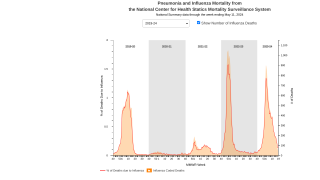21% of Children Exposed to Drug-Drug Interactions

Over the last few decades, research has proven that drug–drug interactions (DDIs) can cause adverse drug events, but little is known today about DDI exposure in children in the outpatient setting.
A new study published by the American Academy of Pediatrics (AAP) on January 4, 2024, found that 21.7% of Medicaid-insured children were exposed to one major DDIs annually.
Of 781,019 children in this study, the odds of DDI exposure increased with age and with medical and mental health complexity.
Frequently implicated drugs included Clonidine, psychiatric medications, and asthma medications.
The highest adverse physiologic effect exposure rate per 100 children included Increased drug concentrations (14.6), central nervous system depression (13.6), and heart rate-corrected QT interval prolongation (9.9).
According to the U.S. CDC, adverse drug events cause approximately 1.3 million emergency department visits each year. About 350,000 patients each year are impacted by adverse drug events.
Furthermore, adults 65 years or older are nearly seven times more likely than younger persons to be hospitalized after an emergency visit.
Still, most of these hospitalizations are due to just a few drugs that should be monitored carefully to prevent problems.
Blood thinners (such as warfarin), diabetes medications (such as insulin), seizure medications (such as phenytoin), and prescription opioids are some examples of these medications, says the CDC.
Over the past 18 years, pharmacist-based medication therapy management (MTM) programs have significantly reduced the number of adverse events.
Since the National Community Pharmacists Association launched Mirixa's innovative MTM programs, pharmacists have reduced costs, saved lives, and become trusted healthcare providers in the U.S.
An MTM pharmacist ensures the drugs patients take are appropriate for their health conditions, aren't leading to dangerous side effects, and don't interact negatively with other medications.
Additionally, these main-street health professionals educate patients about the drugs and vaccines they take, dispelling misinformation.
For example, pharmacists delivered more vaccines during the recent pandemic than any other healthcare provider.
Our Trust Standards: Medical Advisory Committee
























